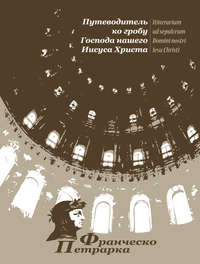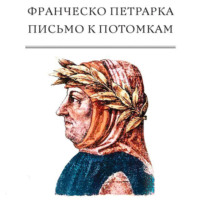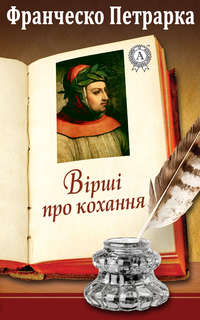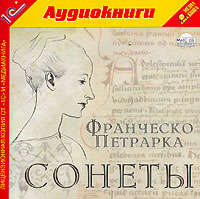 полная версия
полная версияThe Sonnets, Triumphs, and Other Poems of Petrarch
From Paris Petrarch wrote as follows to Cardinal Colonna. "I have visited Paris, the capital of the whole kingdom of France. I entered it in the same state of mind that was felt by Apuleias when he visited Hypata, a city of Thessaly, celebrated for its magic, of which such wonderful things were related, looking again and again at every object, in solicitous suspense, to know whether all that he had heard of the far-famed place was true or false. Here I pass a great deal of time in observation, and, as the day is too short for my curiosity, I add the night. At last, it seems to me that, by long exploring, I have enabled myself to distinguish between the true and the false in what is related about Paris. But, as the subject would be too tedious for this occasion, I shall defer entering fully into particulars till I can do so vivâ voce. My impatience, however, impels me to sketch for you briefly a general idea of this so celebrated city, and of the character of its inhabitants.
"Paris, though always inferior to its fame, and much indebted to the lies of its own people, is undoubtedly a great city. To be sure I never saw a dirtier place, except Avignon. At the same time, its population contains the most learned of men, and it is like a great basket in which are collected the rarest fruits of every country. From the time that its university was founded, as they say by Alcuin, the teacher of Charlemagne, there has not been, to my knowledge, a single Parisian of any fame. The great luminaries of the university were all strangers; and, if the love of my country does not deceive me, they were chiefly Italians, such as Pietro Lombardo, Tomaso d'Aquino, Bonaventura, and many others.
"The character of the Parisians is very singular. There was a time when, from the ferocity of their manners, the French were reckoned barbarians. At present the case is wholly changed. A gay disposition, love of society, ease, and playfulness in conversation now characterize them. They seek every opportunity of distinguishing themselves; and make war against all cares with joking, laughing, singing, eating, and drinking. Prone, however, as they are to pleasure, they are not heroic in adversity. The French love their country and their countrymen; they censure with rigour the faults of other nations, but spread a proportionably thick veil over their own defects."
From Paris, Petrarch proceeded to Ghent, of which only he makes mention to the Cardinal, without noticing any of the towns that lie between. It is curious to find our poet out of humour with Flanders on account of the high price of wine, which was not an indigenous article. In the latter part of his life, Petrarch was certainly one of the most abstemious of men; but, at this period, it would seem that he drank good liquor enough to be concerned about its price.
From Ghent he passed on to Liege. "This city is distinguished," he says, "by the riches and the number of its clergy. As I had heard that excellent MSS. might be found there, I stopped in the place for some time. But is it not singular that in so considerable a place I had difficulty to procure ink enough to copy two orations of Cicero's, and the little that I could obtain was as yellow as saffron?"
Petrarch was received at most of the places he visited, and more particularly at Cologne, with marks of great respect; and he was agreeably surprised to find that his reputation had acquired him the partiality and acquaintance of several inhabitants. He was conducted by his new friends to the banks of the Rhine, where the inhabitants were engaged in the performance of a superstitious annual ceremony, which, for its singularity, deserves to be recorded.
"The banks of the river were crowded with a considerable number of women, their persons comely, and their dress elegant. This great concourse of people seemed to create no confusion. A number of these women, with cheerful countenances, crowned with flowers, bathed their hands and arms in the stream, and uttered, at the same time, some harmonious expressions in a language which I did not understand. I inquired into the cause of this ceremony, and was informed that it arose from a tradition among the people, and particularly among the women, that the impending calamities of the year were carried away by this ablution, and that blessings succeeded in their place. Hence this ceremony is annually renewed, and the ablution performed with unremitting diligence."
The ceremony being finished, Petrarch smiled at their superstition, and exclaimed, "O happy inhabitants of the Rhine, whose waters wash out your miseries, whilst neither the Po nor the Tiber can wash out ours! You transmit your evils to the Britons by means of this river, whilst we send off ours to the Illyrians and the Africans. It seems that our rivers have a slower course."
Petrarch shortened his excursion that he might return the sooner to Avignon, where the Bishop of Lombes had promised to await his return, and take him to Rome.
When he arrived at Lyons, however, he was informed that the Bishop had departed from Avignon for Rome. In the first paroxysm of his disappointment he wrote a letter to his friend, which portrays strongly affectionate feelings, but at the same time an irascible temper. When he came to Avignon, the Cardinal Colonna relieved him from his irritation by acquainting him with the real cause of his brother's departure. The flames of civil dissension had been kindled at Rome between the rival families of Colonna and Orsini. The latter had made great preparations to carry on the war with vigour. In this crisis of affairs, James Colonna had been summoned to Rome to support the interests of his family, and, by his courage and influence, to procure them the succour which they so much required.
Petrarch continued to reside at Avignon for several years after returning from his travels in France and Flanders. It does not appear from his sonnets, during those years, either that his passion for Laura had abated, or that she had given him any more encouragement than heretofore. But in the year 1334, an accident renewed the utmost tenderness of his affections. A terrible affliction visited the city of Avignon. The heat and the drought were so excessive that almost the whole of the common people went about naked to the waist, and, with frenzy and miserable cries, implored Heaven to put an end to their calamities. Persons of both sexes and of all ages had their bodies covered with scales, and changed their skins like serpents.
Laura's constitution was too delicate to resist this infectious malady, and her illness greatly alarmed Petrarch. One day he asked her physician how she was, and was told by him that her condition was very dangerous: on that occasion he composed the following sonnet:5—
This lovely spirit, if ordain'd to leaveIts mortal tenement before its time,Heaven's fairest habitation shall receiveAnd welcome her to breathe its sweetest clime.If she establish her abode betweenMars and the planet-star of Beauty's queen,The sun will be obscured, so dense a cloudOf spirits from adjacent stars will crowdTo gaze upon her beauty infinite.Say that she fixes on a lower sphere,Beneath the glorious sun, her beauty soonWill dim the splendour of inferior stars—Of Mars, of Venus, Mercury, and the Moon.She'll choose not Mars, but higher place than Mars;She will eclipse all planetary light,And Jupiter himself will seem less bright.I trust that I have enough to say in favour of Petrarch to satisfy his rational admirers; but I quote this sonnet as an example of the worst style of Petrarch's poetry. I make the English reader welcome to rate my power of translating it at the very lowest estimation. He cannot go much further down than myself in the scale of valuation, especially if he has Italian enough to know that the exquisite mechanical harmony of Petrarch's style is beyond my reach. It has been alleged that this sonnet shows how much the mind of Petrarch had been influenced by his Platonic studies; but if Plato had written poetry he would never have been so extravagant.
Petrarch, on his return from Germany, had found the old Pope, John XXII., intent on two speculations, to both of which he lent his enthusiastic aid. One of them was a futile attempt to renew the crusades, from which Europe had reposed for a hundred years. The other was the transfer of the holy seat to Rome. The execution of this plan, for which Petrarch sighed as if it were to bring about the millennium, and which was not accomplished by another Pope without embroiling him with his Cardinals, was nevertheless more practicable than capturing Jerusalem. We are told by several Italian writers that the aged Pontiff, moved by repeated entreaties from the Romans, as well as by the remorse of his conscience, thought seriously of effecting this restoration; but the sincerity of his intentions is made questionable by the fact that he never fixed himself at Rome. He wrote, it is true, to Rome in 1333, ordering his palaces and gardens to be repaired; but the troubles which continued to agitate the city were alleged by him as too alarming for his safety there, and he repaired to Bologna to wait for quieter times.
On both of the above subjects, namely, the insane crusades and the more feasible restoration of the papal court to Rome, Petrarch[Pg xxviii] wrote with devoted zeal; they are both alluded to in his twenty-second sonnet.
The death of John XXII. left the Cardinals divided into two great factions. The first was that of the French, at the head of which stood Cardinal Taillerand, son of the beautiful Brunissende de Foix, whose charms were supposed to have detained Pope Clement V. in France. The Italian Cardinals, who formed the opposite faction, had for their chief the Cardinal Colonna. The French party, being the more numerous, were, in some sort, masters of the election; they offered the tiara to Cardinal de Commenges, on condition that he would promise not to transfer the papal court to Rome. That prelate showed himself worthy of the dignity, by refusing to accept it on such terms.
To the surprise of the world, the choice of the conclave fell at last on James Founder, said to be the son of a baker at Savordun, who had been bred as a monk of Citeaux, and always wore the dress of the order. Hence he was called the White Cardinal. He was wholly unlike his portly predecessor John in figure and address, being small in stature, pale in complexion, and weak in voice. He expressed his own astonishment at the honour conferred on him, saying that they had elected an ass. If we may believe Petrarch, he did himself no injustice in likening himself to that quadruped; but our poet was somewhat harsh in his judgment of this Pontiff. He took the name of Benedict XII.
Shortly after his exaltation, Benedict received ambassadors from Rome, earnestly imploring him to bring back the sacred seat to their city; and Petrarch thought he could not serve the embassy better than by publishing a poem in Latin verse, exhibiting Rome in the character of a desolate matron imploring her husband to return to her. Benedict applauded the author of the epistle, but declined complying with its prayer. Instead of revisiting Italy, his Holiness ordered a magnificent and costly palace to be constructed for him at Avignon. Hitherto, it would seem that the Popes had lived in hired houses. In imitation of their Pontiff, the Cardinals set about building superb mansions, to the unbounded indignation of Petrarch, who saw in these new habitations not only a graceless and unchristian spirit of luxury, but a sure indication that their owners had no thoughts of removing to Rome.
In the January of the following year, Pope Benedict presented our poet with the canonicate of Lombes, with the expectancy of the first prebend which should become vacant. This preferment Petrarch is supposed to have owed to the influence of Cardinal Colonna.
The troubles which at this time agitated Italy drew to Avignon, in the year 1335, a personage who holds a pre-eminent interest in the life of Petrarch, namely, Azzo da Correggio, who was sent thither by the Scaligeri of Parma. The State of Parma had belonged originally to the popes; but two powerful families, the Rossis and the Correggios, had profited by the quarrels between the church and the empire to usurp the government, and during five-and-twenty years, Gilberto Correggio and Rolando Rossi alternately lost and won the sovereignty, till, at last, the confederate princes took the city, and conferred the government of it on Guido Correggio, the greatest enemy of the Rossis.
Gilbert Correggio left at his death a widow, the sister of Cane de la Scala, and four sons, Guido, Simone, Azzo, and Giovanni. It is only with Azzo that we are particularly concerned in the history of Petrarch.
Azzo was born in the year 1303, being thus a year older than our poet. Originally intended for the church, he preferred the sword to the crozier, and became a distinguished soldier. He married the daughter of Luigi Gonzagua, lord of Mantua. He was a man of bold original spirit, and so indefatigable that he acquired the name of Iron-foot. Nor was his energy merely physical; he read much, and forgot nothing—his memory was a library. Azzo's character, to be sure, even with allowance for turbulent times, is not invulnerable at all points to a rigid scrutiny; and, notwithstanding all the praises of Petrarch, who dedicated to him his Treatise on a Solitary Life in 1366, his political career contained some acts of perfidy. But we must inure ourselves, in the biography of Petrarch, to his over-estimation of favourites in the article of morals.
It was not long ere Petrarch was called upon to give a substantial proof of his regard for Azzo. After the seizure of Parma by the confederate princes, Marsilio di Rossi, brother of Rolando, went to Paris to demand assistance from the French king. The King of Bohemia had given over the government of Parma to him and his brothers, and the Rossi now saw it with grief assigned to his enemies, the Correggios. Marsilio could obtain no succour from the French, who were now busy in preparing for war with the English; so he carried to the Pope at Avignon his complaints against the alleged injustice of the lords of Verona and the Correggios in breaking an express treaty which they had made with the house of Rossi.
Azzo had the threefold task of defending, before the Pope's tribunal, the lords of Verona, whose envoy he was; the rights of his family, which were attacked; and his own personal character, which was charged with some grave objections. Revering the eloquence and influence of Petrarch, he importuned him to be his public defender. Our poet, as we have seen, had studied the law, but had never followed the profession. "It is not my vocation," he says, in his preface to his Familiar Epistles, "to undertake the defence of others. I detest the bar; I love retirement; I despise money; and, if I tried to let out my tongue for hire, my nature would revolt at the attempt."
But what Petrarch would not undertake either from taste or motives of interest, he undertook at the call of friendship. He pleaded the cause of Azzo before the Pope and Cardinals; it was a finely-interesting cause, that afforded a vast field for his eloquence. He brought off his client triumphantly; and the Rossis were defeated in their demand.
At the same time, it is a proud trait in Petrarch's character that he showed himself on this occasion not only an orator and a lawyer, but a perfect gentleman. In the midst of all his zealous pleading, he stooped neither to satire nor personality against the opposing party. He could say, with all the boldness of truth, in a letter to Ugolino di Rossi, the Bishop of Parma, "I pleaded against your house for Azzo Correggio, but you were present at the pleading; do me justice, and confess that I carefully avoided not only attacks on your family and reputation, but even those railleries in which advocates so much delight."
On this occasion, Azzo had brought to Avignon, as his colleague in the lawsuit, Guglielmo da Pastrengo, who exercised the office of judge and notary at Verona. He was a man of deep knowledge in the law; versed, besides, in every branch of elegant learning, he was a poet into the bargain. In Petrarch's many books of epistles, there are few letters addressed by him to this personage; but it is certain that they contracted a friendship at this period which endured for life.
All this time the Bishop of Lombes still continued at Rome; and, from time to time, solicited his friend Petrarch to join him. "Petrarch would have gladly joined him," says De Sade; "but he was detained at Avignon by his attachment to John Colonna and his love of Laura:" a whimsical junction of detaining causes, in which the fascination of the Cardinal may easily be supposed to have been weaker than that of Laura. In writing to our poet, at Avignon, the Bishop rallied Petrarch on the imaginary existence of the object of his passion. Some stupid readers of the Bishop's letter, in subsequent times, took it into their heads that there was a literal proof in the prelate's jesting epistle of our poet's passion for Laura being a phantom and a fiction. But, possible as it may be, that the Bishop in reality suspected him to exaggerate the flame of his devotion for the two great objects of his idolatry, Laura and St. Augustine, he writes in a vein of pleasantry that need not be taken for grave accusation. "You are befooling us all, my dear Petrarch," says the prelate; "and it is wonderful that at so tender an age (Petrarch's tender age was at this time thirty-one) you can deceive the world with so much art and success. And, not content with deceiving the world, you would fain deceive Heaven itself. You make a semblance of loving St. Augustine and his works; but, in your heart, you love the poets and the philosophers. Your Laura is a phantom created by your imagination for the exercise of your poetry. Your verse, your love, your sighs, are all a fiction; or, if there is anything real in your passion, it is not for the lady Laura, but for the laurel—that is, the crown of poets. I have been your dupe for some time, and, whilst you showed a strong desire to visit Rome, I hoped to welcome you there. But my eyes are now opened to all your rogueries, which nevertheless, will not prevent me from loving you."
Petrarch, in his answer to the Bishop,6 says, "My father, if I love the poets, I only follow, in this respect, the example of St. Augustine. I take the sainted father himself to witness the sincerity of my attachment to him. He is now in a place where he can neither deceive nor be deceived. I flatter myself that he pities my errors, especially when he recalls his own." St. Augustine had been somewhat profligate in his younger days.
"As to Laura," continues the poet, "would to Heaven that she were only an imaginary personage, and my passion for her only a pastime! Alas! it is a madness which it would be difficult and painful to feign for any length of time; and what an extravagance it would be to affect such a passion! One may counterfeit illness by action, by voice, and by manner, but no one in health can give himself the true air and complexion of disease. How often have you yourself been witness of my paleness and my sufferings! I know very well that you speak only in irony: it is your favourite figure of speech, but I hope that time will cicatrize these wounds of my spirit, and that Augustine, whom I pretend to love, will furnish me with a defence against a Laura who does not exist."
Years had now elapsed since Petrarch had conceived his passion for Laura; and it was obviously doomed to be a source of hopeless torment to him as long as he should continue near her; for she could breathe no more encouragement on his love than what was barely sufficient to keep it alive; and, if she had bestowed more favour on him, the consequences might have been ultimately most tragic to both of them. His own reflections, and the advice of his friends, suggested that absence and change of objects were the only means likely to lessen his misery; he determined, therefore, to travel once more, and set out for Rome in 1335.
The wish to assuage his passion, by means of absence, was his principal motive for going again upon his travels; but, before he could wind up his resolution to depart, the state of his mind bordered on distraction. One day he observed a country girl washing the veil of Laura; a sudden trembling seized him—and, though the heat of the weather was intense, he grew cold and shivered. For some time he was incapable of applying to study or business. His soul, he said, was like a field of battle, where his passion and reason held continual conflict. In his calmer moments, many agreeable motives for travelling suggested themselves to his mind. He had a strong desire to visit Rome, where he was sure of finding the kindest welcome from the Bishop of Lombes. He was to pass through Paris also; and there he had left some valued friends, to whom he had promised that he would return. At the head of those friends were Dionisio dal Borgo San Sepolcro and Roberto Bardi, a Florentine, whom the Pope had lately made chancellor of the Church of Paris, and given him the canonship of Nôtre Dame. Dionisio dal Borgo was a native of Tuscany, and one of the Roberti family. His name in literature was so considerable that Filippo Villani thought it worth while to write his life. Petrarch wrote his funeral eulogy, and alludes to Dionisio's power of reading futurity by the stars. But Petrarch had not a grain of faith in astrology; on the contrary, he has himself recorded that he derided it. After having obtained, with some difficulty, the permission of Cardinal Colonna, he took leave of his friends at Avignon, and set out for Marseilles. Embarking there in a ship that was setting sail for Civita Vecchia, he concealed his name, and gave himself out for a pilgrim going to worship at Rome. Great was his joy when, from the deck, he could discover the coast of his beloved Italy. It was a joy, nevertheless, chastened by one indomitable recollection—that of the idol he had left behind. On his landing he perceived a laurel tree; its name seemed to typify her who dwelt for ever in his heart: he flew to embrace it; but in his transports overlooked a brook that was between them, into which he fell—and the accident caused him to swoon. Always occupied with Laura, he says, "On those shores washed by the Tyrrhene sea, I beheld that stately laurel which always warms my imagination, and, through my impatience, fell breathless into the intervening stream. I was alone, and in the woods, yet I blushed at my own heedlessness; for, to the reflecting mind, no witness is necessary to excite the emotion of shame."
It was not easy for Petrarch to pass from the coast of Tuscany to Rome; for war between the Ursini and Colonna houses had been renewed with more fury than ever, and filled all the surrounding country with armed men. As he had no escort, he took refuge in the castle of Capranica, where he was hospitably received by Orso, Count of Anguillara, who had married Agnes Colonna, sister of the Cardinal and the Bishop. In his letter to the latter, Petrarch luxuriates in describing the romantic and rich landscape of Capranica, a country believed by the ancients to have been the first that was cultivated under the reign of Saturn. He draws, however, a frightful contrast to its rural picture in the horrors of war which here prevailed. "Peace," he says, "is the only charm which I could not find in this beautiful region. The shepherd, instead of guarding against wolves, goes armed into the woods to defend himself against men. The labourer, in a coat of mail, uses a lance instead of a goad, to drive his cattle.[Pg xxxiii] The fowler covers himself with a shield as he draws his nets; the fisherman carries a sword whilst he hooks his fish; and the native draws water from the well in an old rusty casque, instead of a pail. In a word, arms are used here as tools and implements for all the labours of the field, and all the wants of men. In the night are heard dreadful howlings round the walls of towns, and and in the day terrible voices crying incessantly to arms. What music is this compared with those soft and harmonious sounds which. I drew from my lute at Avignon!"
On his arrival at Capranica, Petrarch despatched a courier to the Bishop of Lombes, informing him where he was, and of his inability to get to Rome, all roads to it being beset by the enemy. The Bishop expressed great joy at his friend's arrival in Italy, and went to meet him at Capranica, with Stefano Colonna, his brother, senator of Rome. They had with them only a troop of one hundred horsemen; and, considering that the enemy kept possession of the country with five hundred men, it is wonderful that they met with no difficulties on their route; but the reputation of the Colonnas had struck terror into the hostile camp. They entered Rome without having had a single skirmish with the enemy. Stefano Colonna, in his quality of senator, occupied the Capitol, where he assigned apartments to Petrarch; and the poet was lodged on that famous hill which Scipio, Metellus, and Pompey, had ascended in triumph. Petrarch was received and treated by the Colonnas Like a child of their family. The venerable old Stefano, who had known him at Avignon, loaded our poet with kindness. But, of all the family, it would seem that Petrarch delighted most in the conversation of Giovanni da S. Vito, a younger brother of the aged Stefano, and uncle of the Cardinal and Bishop. Their tastes were congenial. Giovanni had made a particular study of the antiquities of Rome; he was, therefore, a most welcome cicerone to our poet, being, perhaps, the only Roman then alive, who understood the subject deeply, if we except Cola di Rienzo, of whom we shall soon have occasion to speak.









